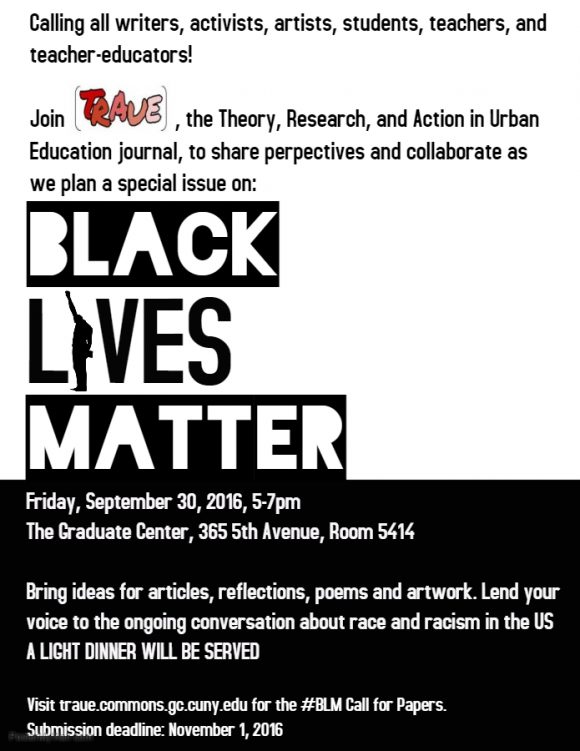#BlackLivesMatter is this generation’s social justice call-to-action founded by three queer women of color. It articulates the narratives and counter-narratives of Black people and blackness in the United States, and the way that these resonate across the exceedingly blurry lines of race, ethnicity, gender, sexuality and class. #BlackLivesMatter is the empowerment of silenced voices to join, disrupt and even change the conversation in different spaces. #BlackLivesMatter is about unapologetically confronting the institutional level racism that perpetuates historically rooted inequality on Black and Brown bodies.
This contemporary engagement in #BlackLivesMatter is not divorced from a historical trajectory. In 1903, W.E.B. Du Bois asserted, “The problem of the twentieth century is the problem of the color-line” (Du Bois, 1903/1994). Nearly a century later, Cornel West contended that “the problem of the 21st century” remained “the problem of the color line” (West, 2001). Today, in the age of social media, images of state violence against Black men, women and trans people pervade the media landscape, evoking images of sanctioned violence. Keeanga Yamahtta Taylor reminds us that “the past is not yet the past” (Taylor, 2015) and that “officers have a license to kill–and a consistent propensity to use it (Taylor, 2015). In the current media terrain, the color line proves to be a persistent thread of the Black experience in the United States.
This special issue of TRAUE invites readers to lend their voices to an ongoing conversation about race and racism in the United States through a diverse array of forms and approaches. We invite articles, reviews, policy briefs and notes from the field as well as short stories, poems, open letters and photographs. We seek to anthologize diverse perspectives and experiences by engaging topics of identity as it intersects with educational institutions.
The graduate student online journal, “Theory, Research, and Action in Urban Education” (TRAUE) is now accepting submissions for our upcoming winter themed issue. Submissions are due November 1, 2016. Please review our submission guidelines and direct all submissions and inquiries to [email protected].
TRAUE is an open-access, peer-reviewed online journal published by doctoral students and recent graduates of the Graduate Center of the City University of New York. We encourage graduate students and recent graduates to submit studies in progress, as well as findings from completed research and reflections on practice. TRAUE’s mission is to develop and share tools for imagining and enacting sustainable, systemic educational and social equity. Submissions to this journal should advance social and educational equity, be emerging ideas with emerging theoretical grounding.



